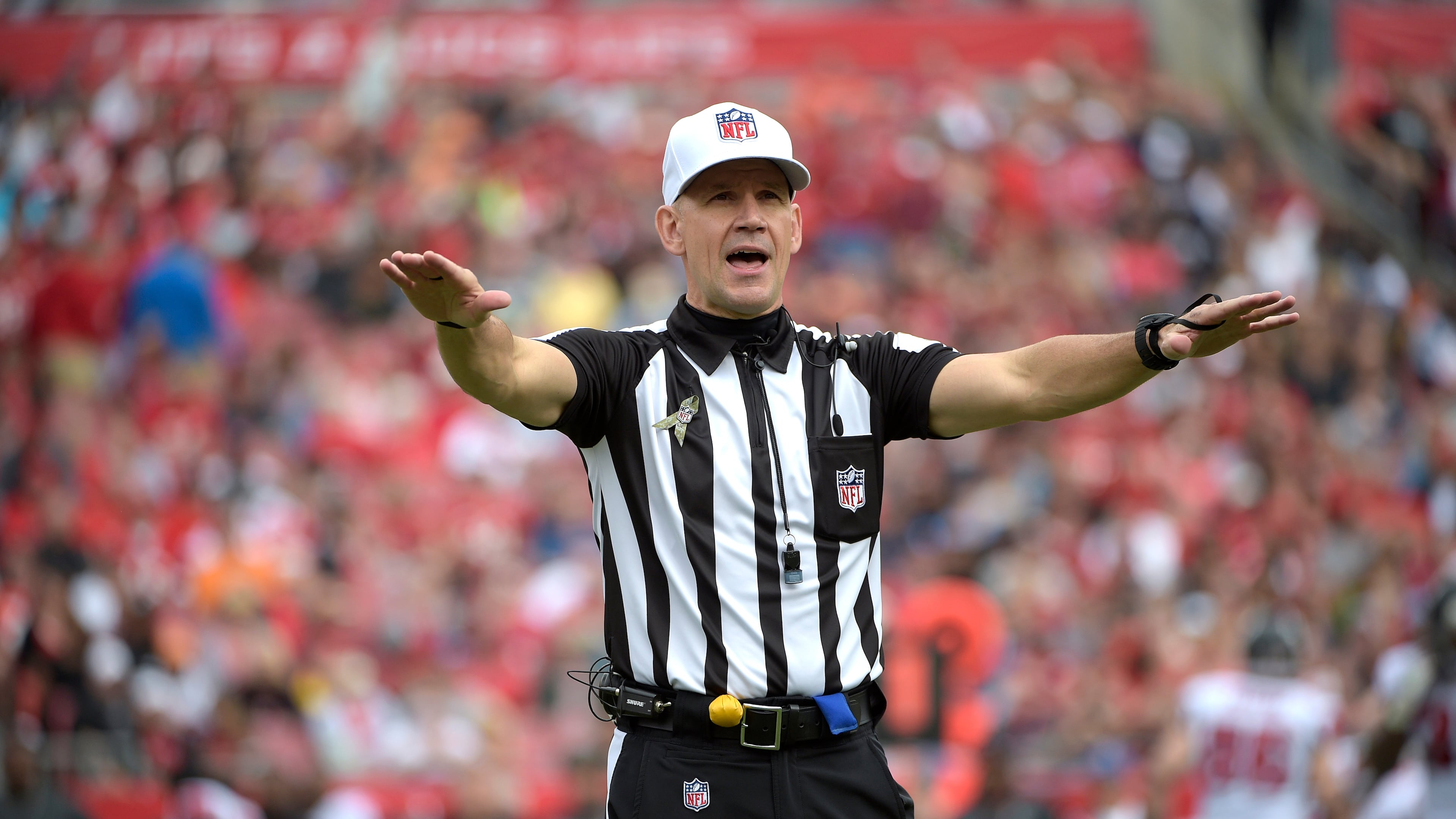Super Bowl referee is no stranger to strange episodes

Referees have made a lot of news this season, not all of it favorable, and the NFL will hope that the Super Bowl is not remembered for another officiating blunder. Perhaps it is odd, then, that the league has chosen, as the big game’s referee, Clete Blakeman, who struggled to flip a coin successfully earlier in the playoffs. He also played a small but vital role in the Deflategate contretemps, a misadventure the league probably wants to forget.
At the start of overtime in the divisional playoff game between the Green Bay Packers and the Arizona Cardinals on Jan. 16, Aaron Rodgers of the Packers called tails. Blakeman threw the coin up, and it landed on heads without ever having flipped over, prompting yelps of complaint from the Packers.
Blakeman decided to retoss the coin, and it landed on heads again, potentially avoiding a major controversy. The Cardinals elected to receive and marched down the field for a touchdown and a win.
Blakeman has reffed four playoff games in his career, though this will be his first Super Bowl appearance. One of them involved the Broncos: Denver’s 24-17 divisional round win over the Chargers in January 2014.
More memorable was a regular-season game in November 2012 between the Panthers and the Patriots in which a potential game-winning pass by Tom Brady was picked off in the end zone. A flag was initially thrown for pass interference on Luke Kuechly, but it was picked up, with Blakeman explaining later that the ball was uncatchable, to the annoyance of New England fans. Brady gave the officials an earful after the game.
Perhaps it is just as well the Patriots are not in this year’s Super Bowl, as some of their fans also have a grievance with Blakeman because of his link to last season’s ball deflation controversy. Blakeman was an alternate official at the AFC championship game last January, ordinarily not a job that becomes a flash point of controversy. But along with another alternate, Dyrol Prioleau, Blakeman was asked to test the inflation of Patriots game balls at halftime after a complaint by the Colts.
All 12 Patriot balls were found to be below the legal inflation level. The two officials used different pressure gauges, and Blakeman’s showed lower levels on every ball.
He also was interviewed for the Wells report, and supplied the detail that referee Walt Anderson was “visibly concerned and uncharacteristically used an expletive when the game balls could not be located.”
He also said that the Patriots locker room attendant Jim McNally took the game balls to the field on his own without express permission, which was a “break in our normal protocol.”
Officials for the playoffs are chosen based on their performance in the regular season, said Michael Signora, the league spokesman. “They are ranked by position, based on their accuracy percentage, which includes calls made and not made,” he said. The referee must have three years of experience and have reffed a playoff game in a previous year.
Blakeman was a backup quarterback at Nebraska, throwing 79 passes in his career. He went on to earn a law degree from Nebraska and practices personal injury law in Omaha. After two years as a field judge, he was promoted to referee for the 2010 season.
It is hard to find too many trends in Blakeman’s refereeing statistics; perhaps that is what the league likes about him. According to Pro-Football-Reference.com, his crews have called 49.6 percent of penalties on the home team, and the home team wins 57.8 percent of his games; both figures are right about average. The crews call about 12 penalties a game, also an average figure.
This season, his penalties called figure was up slightly, to 14.0, but the league’s figure was higher than usual also, at 13.7.
Not every referee falls so neatly near the league average. Carl Cheffers’ crew this season called 16.3 penalties a game, including 25 in a Chargers-Raiders game on Christmas Eve. Gene Steratore’s crews called only 11.1, including only five in the Eagles-Giants season finale on Jan. 3.
Blakeman’s Super Bowl staff is rounded out by Jeff Rice (umpire), Wayne Mackie (head linesman), Rusty Baynes (line judge), Boris Cheek (field judge), Scott Edwards (side judge) and Keith Ferguson (back judge).

